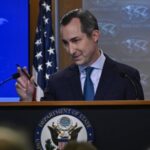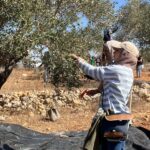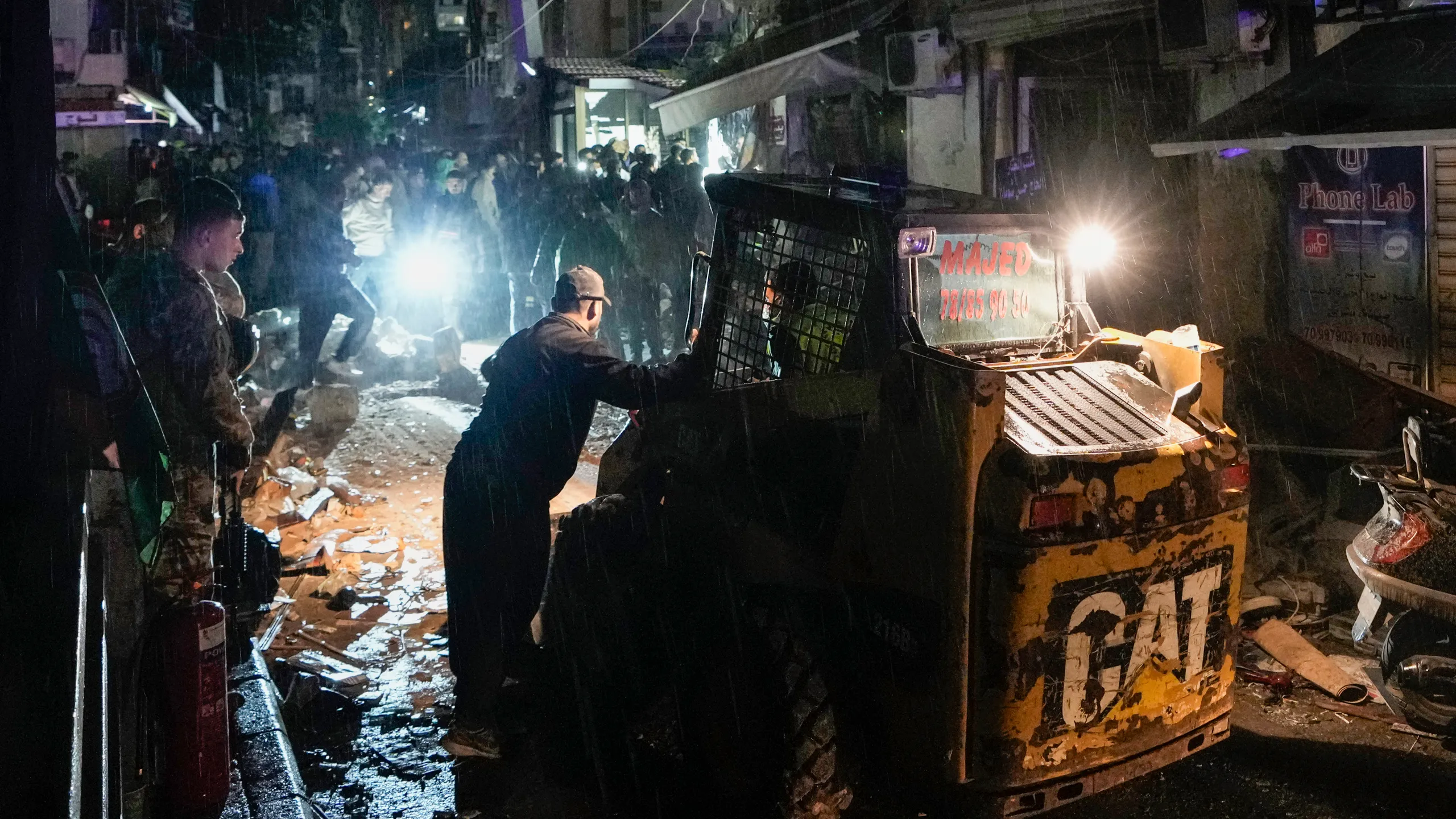On Monday, an Israeli airstrike smashed into a big populated residential area in Lebanon’s capital near key government and diplomatic buildings and killed at least five people as the U.S. pressed ahead with cease-fire efforts. Lebanon’s National News State Agency said two missiles hit the area of Zuqaq al-Blat where local U.N. headquarters are located.
Since late September, Israel has sharply escalated its barrages on Lebanon, promising to sharply weaken the Iranian-backed Hezbollah militant group and end its barrages in Israel that the militants have said are in solidarity with Palestinians during the war in Gaza. The United States has been working on a cease-fire proposal that would withdraw Israeli ground forces from Lebanon and push Hezbollah forces back well beyond the Israeli border.
Lebanon’s Parliament Speaker Nabih Berri, a Hezbollah ally who is brokering for the militants, is scheduled to meet Tuesday in the Lebanese capital with U.S. envoy Amos Hochstein. The White House doesn’t confirm any visit planned by Hochstein.
Impact on Civilians and Regional Diplomacy
Labor Minister Mostafa Bayram, who met Monday with Berri, said Lebanon will transmit its “positive position” to the latest U.S. offer. The Israeli military had no immediate comment on the strike, which also wounded 24 people, according to the Lebanese Health Ministry.
Many areas in central Beirut, including Zuqaq al-Blat, have become a refuge for many of the roughly 1 million people displaced by the ongoing conflict in southern Lebanon and the southern suburbs of Beirut. The strike also occurred near Hussaini, a Shia mosque. The target of the airstrike remained unclear, and the Israeli army did not issue a prior warning. Ambulance sirens echoed through the streets as an Associated Press photographer on the scene saw significant casualties on the street.
Continued Airstrikes and Ceasefire Negotiations
This was the second straight day of Israeli strikes in central Beirut after an absence of more than a month. Earlier Sunday, a strike in the Ras el-Nabaa district killed Hezbollah media spokesman Mohammed Afif and six others, one a woman. Four other people died in a separate strike in the commercial district of Mar Elias later that day. The Israeli military has not said what the target of that strike was.
Minutes after Monday’s attack, Lebanon caretaker Prime Minister Najib Mikati published a post on X, saying, “All countries and decision-makers are required to put an end to the bloody and destructive Israeli aggression on Lebanon and apply international resolutions, most notably Resolution 1701.” The UN Security Council adopted Resolution 1701 in August 2006, bringing a month of war between Israel and Hezbollah to an end. It purported to create a security buffer zone in southern Lebanon. However, this settlement’s full implementation has been met with obstacles from both sides.
The settlement is once more back on the table as part of an American proposal for a cease-fire deal trying to stop the 13 months of exchanges of fire between Israel and Hezbollah. Israeli ground forces, which invaded southern Lebanon on Oct. 1, would have withdrawn entirely from Lebanon, where only the Lebanese army and the U.N. peacekeeping force UNIFIL would remain as an armed presence south of Lebanon’s Litani River. Hezbollah would withdraw from the area.
More:Modi’s Government is planning to develop its own Democracy index after being downgraded by global rankings
A Western diplomat familiar with the talks told The Associated Press that there is a sense of “cautious optimism.” The diplomat, speaking on condition of anonymity to discuss behind-the-scenes negotiations, said a final deal was “still in the hands” of the warring players.
Israel is reportedly insisting on assurances it can continue to use military force against Hezbollah if necessary, a demand the Lebanese are unlikely to accept. Israeli government spokesperson David Mencer declared that Israel will continue pounding Hezbollah’s infrastructure as the US and other countries led negotiations for the ceasefire. “The military campaign will continue until the immediate threat from Lebanon is removed,” he said.
Again on Monday, Hezbollah rocketed dozens of projectiles toward Israel. A rocket that hit the northern Israeli town of Shfaram killed one woman and injured 10, said Israel’s Magen David Adom rescue services. More than 3,500 people have been killed by Israeli fire, according to Lebanon’s Health Ministry. In Israel, 77 people, including 31 soldiers, have been killed by Hezbollah rockets, while over 50 soldiers have been killed in the Israeli ground offensive. Israel maintains that it is targeting Hezbollah to allow thousands of Israelis to move back to their homes near the border.















